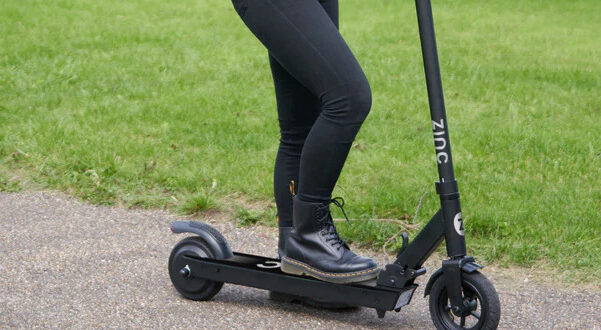The e-scooter brand Zinc has joined the calls for the Government to legalise e-scooters, amid the soaring cost of fuel prices.
Last week, the average price of a full tank of petrol hit £100 for the first time, as the price per litre jumped by the highest amount in 17 years.
Zinc, the British-based scooter brand, has urged ministers to provide a timescale for the proposed legislation update, which is believed to pave the way for the legalisation of private-user scooters.
Chirag Shah, chief operating officer for Zinc says: “For the equivalent of a couple of tanks of petrol you could buy an e-scooter. Fuel prices show no sign of slowing down and for a fraction of the cost, the public can experience a low-cost alternative for shorter journeys. E-scooters can potentially change the way we travel and help address pollution and congestion problems.
“The Government has already recognized their potential with the introduction of rental trials, and the Queen’s Speech indicated that the Government expected to legalise their use, but it isn’t clear when private e-scooters will be allowed on the roads.”
Specialist retailer Pure Electric has also called on the Government to bring forward the legalisation of e-scooters, as petrol prices hit a 17-year-high amid a cost of living crisis.
Bristol-based chain Pure Electric, which specialises in e-bikes and e-scooter sales, has urged ministers to act now to allow access to low-cost, zero-emission transport.
On Thursday (9th June), the RAC revealed that the average cost of filling a tank of petrol in the UK hit £100, putting significant pressure on household spending.
The Government has already announced plans for a new e-scooter category, paving the way for the legalisation of private-use scooters on the roads, but it is not clear when the new legislation will be brought in.

The soaring fuel prices have been sparked by the Russian invasion of Ukraine, as European nations have moved to reduce their dependence on Russian oil.
Last month, the Government announced plans for a new vehicle category that would pave the way for the legalisation of private-use e-scooters.
The new vehicle category would cater for low speed, zero emission vehicles, with e-scooters likely to be the first vehicles added to that category.
It is currently illegal to ride privately-owned electric scooters on public roads without a licence or insurance.
There are more than 30 trial scooter rental schemes in operation across the UK, which the Government is using to collect safety data to inform any updated legislation.
Read more: Campaigners welcome plans for micromobility in Scottish transport plan
While the new Transport Bill, which would include e-scooter legislation, is slated for the 2022-23 parliamentary session, it’s not clear when the new laws will be introduced.
 micromobilitybiz Delivering news updates to the micromobility industry, focusing on e-bikes, e-scooters and green transport
micromobilitybiz Delivering news updates to the micromobility industry, focusing on e-bikes, e-scooters and green transport




